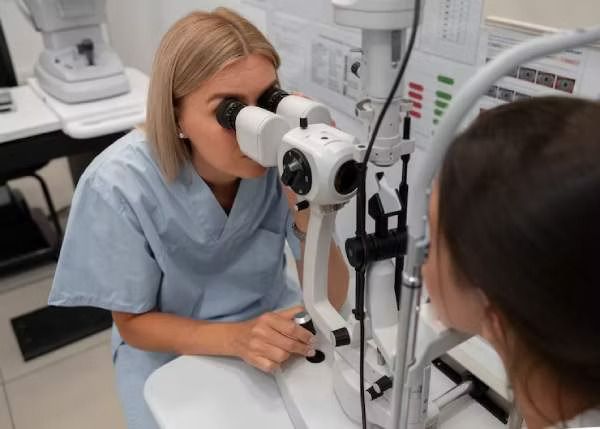Your vision connects you to everything that matters. Family faces, career success, daily independence—all depend on healthy eyes. Yet many people take their sight for granted until problems emerge. When that happens, the choice of eye care provider becomes critical.
The demand for trusted, community-focused optometrists continues growing as people seek personalized care over impersonal chain stores. Mission Hills residents have particular expectations for their healthcare providers. They want expertise combined with genuine concern for their wellbeing. A Mission Hills optometrist understands these community values while delivering the advanced care that vision health requires.
What separates exceptional eye care from routine check-ups? The answer lies in several key factors that discerning patients have learned to recognize and value.
Personalized Eye Care with a Community Touch
Generic eye exams follow a one-size-fits-all approach. Patients become numbers processed through standardized procedures. This might work for basic vision screening, but comprehensive eye health requires something different.
Mission Hills optometrists build relationships that span decades. Many practices see three generations of the same family, creating a continuity of care that chain stores simply cannot match. Your optometrist remembers your previous concerns, tracks changes over time, and understands your lifestyle needs.
This personal approach extends beyond medical history. Local optometrists understand the environmental factors affecting their community. They know about seasonal allergies common to the area, occupational hazards faced by local workers, and lifestyle patterns that impact eye health.
Consider the difference between explaining your vision concerns to a new practitioner every visit versus discussing them with someone who has monitored your eye health for years. The latter creates an environment where subtle changes get noticed and addressed before they become serious problems.
Community optometrists also provide something increasingly rare in healthcare—time. Appointments aren’t rushed through predetermined schedules. Questions get answered thoroughly. Concerns receive proper attention. This unhurried approach often reveals issues that quick screenings miss.
Advanced Technology for Accurate Diagnosis
Modern eye care relies heavily on diagnostic technology. The difference between basic and advanced equipment can mean the difference between catching problems early and missing them entirely.
Digital retinal imaging creates detailed photographs of the back of your eye. These images reveal signs of diabetes, high blood pressure, glaucoma, and macular degeneration long before symptoms appear. Many serious eye conditions cause permanent damage before patients notice vision changes.
Optical coherence tomography (OCT) takes this further by creating cross-sectional images of retinal layers. This technology detects microscopic changes that traditional examination methods cannot see. Early detection of glaucoma, for example, can prevent irreversible vision loss through timely treatment.
Visual field testing maps your complete field of vision, identifying blind spots that might indicate neurological issues or eye diseases. Corneal topography creates detailed maps of your cornea’s surface, essential for contact lens fitting and detecting conditions like keratoconus.
These tools require significant investment and ongoing training. Chain stores often use older or more basic equipment to control costs. Independent practices can choose the best available technology and upgrade regularly.
The real advantage comes from combining advanced technology with experienced interpretation. Sophisticated equipment produces mountains of data, but it takes skill to identify what matters and what doesn’t. An experienced optometrist can spot subtle patterns that indicate developing problems.
Comprehensive Services Beyond Glasses and Contacts
Vision care extends far beyond determining prescription strength. Comprehensive practices address the full spectrum of eye health needs throughout life.
Pediatric eye care requires specialized knowledge and equipment. Children’s eyes develop rapidly, and early intervention can prevent lifelong vision problems. Lazy eye, crossed eyes, and learning-related vision issues need prompt attention during critical developmental windows.
Dry eye treatment has become increasingly important as screen time increases and environmental factors worsen symptoms. Effective treatment requires identifying underlying causes and customizing therapy approaches. Simple artificial tears rarely provide lasting relief for chronic dry eye.
Vision therapy helps patients with eye coordination problems, focusing difficulties, and visual processing issues. These problems often contribute to reading difficulties, headaches, and fatigue. Traditional eye exams might miss these functional vision problems.
Specialty contact lenses serve patients with irregular corneas, high prescriptions, or other complex needs. Fitting these lenses requires extensive training and experience. Many patients who were told they cannot wear contacts actually can with the right lens design.
Expertise Combined with Compassion
Technical skills matter, but they represent only part of quality eye care. The best optometrists combine clinical expertise with genuine concern for patient wellbeing.
Experience makes a significant difference in eye care. Newly graduated optometrists have current knowledge but lack the pattern recognition that comes from seeing thousands of patients. Experienced practitioners can quickly identify subtle signs that might escape less seasoned colleagues.
Continuing education keeps practitioners current with evolving techniques and treatments. The eye care field advances rapidly, and staying current requires ongoing commitment. Active participation in professional organizations and advanced training programs indicates dedication to providing the best possible care.
Convenient, Accessible Care for Everyone
Quality care becomes meaningless if patients cannot access it conveniently. Modern optometry practices adapt their operations to serve diverse patient needs.
Insurance acceptance and transparent pricing remove financial barriers to care. Many patients delay necessary treatment due to cost concerns. Clear communication about fees and insurance coverage helps patients make informed decisions about their care.
The Clear Choice for Vision Health
Mission Hills optometrists distinguish themselves through personalized care, advanced technology, comprehensive services, experienced practitioners, and patient-focused operations. These factors combine to create an eye care experience that protects and enhances vision throughout life.
Your vision deserves attention from professionals who understand both the science and the art of eye care. Regular comprehensive eye exams can prevent vision loss, detect serious health conditions early, and ensure you see your best at every stage of life.
Don’t wait until vision problems force you to seek care. Proactive eye health management provides the best outcomes and the greatest peace of mind. See the difference with Mission Hills optometrists today.
Frequently Asked Questions
What services do Mission Hills optometrists provide?
Mission Hills optometrists offer comprehensive eye exams, prescription glasses and contact lenses, pediatric eye care, dry eye treatment, vision therapy, specialty contact lens fitting, and management of eye diseases like glaucoma and diabetic retinopathy.
How often should I get my eyes checked?
Adults should have comprehensive eye exams every 1-2 years, depending on age and risk factors. Children need exams before starting school and regularly throughout their development. People with diabetes, high blood pressure, or family history of eye disease may need more frequent monitoring.
Do Mission Hills optometrists accept insurance?
Most Mission Hills optometry practices accept major vision and medical insurance plans. Coverage varies by plan and service type. Call your chosen practice to verify your specific insurance acceptance and coverage details.
What technology is used during an eye exam?
Modern eye exams use digital retinal cameras, OCT scanning, automated refraction equipment, visual field analyzers, and corneal topography. These technologies provide detailed information about eye health that traditional methods cannot detect.
Can Mission Hills optometrists help with children’s vision care?
Yes, many Mission Hills optometrists specialize in pediatric eye care. They can diagnose and treat conditions like lazy eye, crossed eyes, refractive errors, and learning-related vision problems that affect children’s development and academic success.

